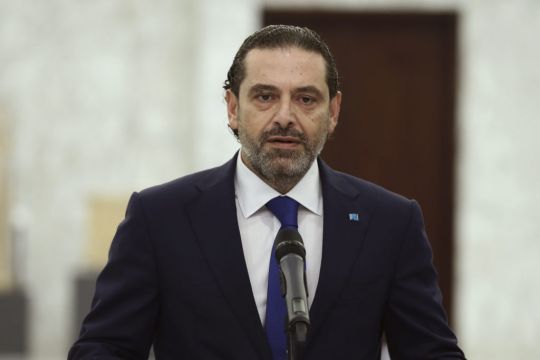Lebanon’s prime minister-designate has stepped down citing “key differences” with the president after nine months of political wrangling that failed to put together a government for the crisis-ridden country.
The development is likely to plunge Lebanon further into chaos and uncertainty amid an unprecedented economic breakdown and dim prospects for a recovery package from the International Monetary Fund.
“It is clear that we will not be able to agree with the president,” Saad Hariri said after a 20-minute meeting with President Michel Aoun.

“I have excused myself from forming the government. May God help the country.”
In a last-ditch effort to end the political deadlock, Mr Hariri, 51, had also met with Mr Aoun on Wednesday, when he proposed a new 24-member Cabinet and said he expected a response from the president by Thursday.
International calls have mounted for Lebanese leaders to form a new government.
In an unusual move, the French and US ambassadors to Beirut recently travelled to Saudi Arabia to discuss Lebanon with Saudi officials.
The two ambassadors said Lebanon was in “desperate need” of a new, pro-reform government to lead it out of its economic and financial crisis.
But for months, the effort has been blocked by a power struggle between Mr Hariri on one side and Mr Aoun and his son-in-law, Gebran Bassil, who heads the largest bloc in parliament, on the other.

They locked horns over the shape of the Cabinet that will oversee critical reforms and elections. Each side blamed the other for the deadlock, which has paralysed Lebanon even as the economic meltdown accelerated. The national currency has plunged in value, poverty has deepened and inflation has spiralled.
Nabil Bou Monsef, a political commentator at the An-Nahar newspaper, said Mr Hariri’s resignation deepened the crisis, predicting that naming a new prime minister would now be even more difficult.
“We may not be able to form a government or find an alternative to Saad Hariri,” Mr Bou Monsef said.
“President Michel Aoun will now consider himself victorious in getting rid of Saad Hariri. But in reality, (Aoun) has opened the gates of hell for the whole country and his rule.”
Mr Aoun has in turn blamed Mr Hariri for the deadlock, saying the premier-designate did not respect the national consensus.
Regional and international mediation has failed to bridge the differences between the two sides. European Union foreign policy chief, Josep Borrell, said during a visit to Lebanon last month that a power struggle and a case of strong mistrust was at the heart of the fight between the political leaders.







